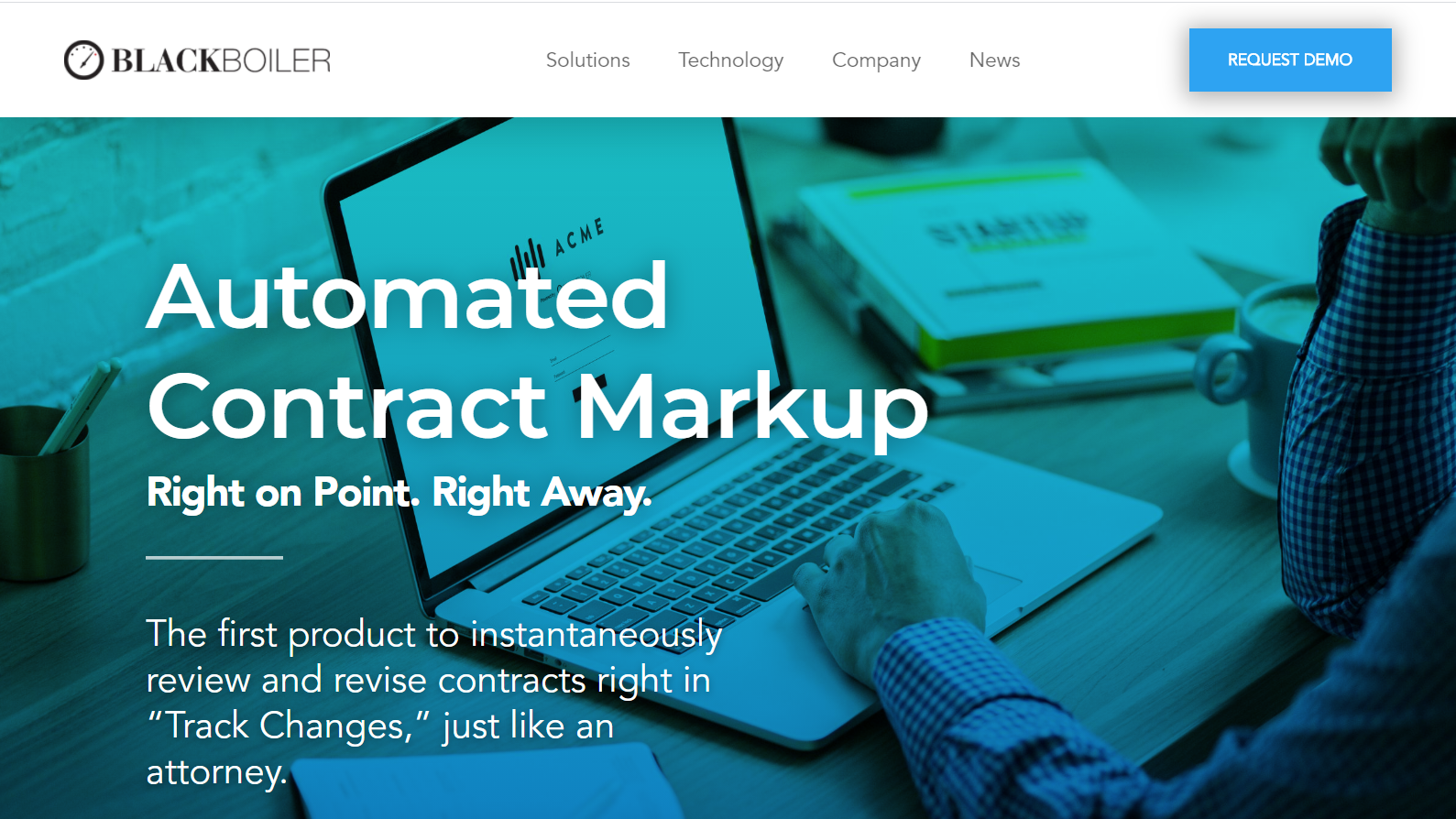BlackBoiler, a company whose AI-based technology automatically marks up draft contract language, said today that it has secured $3.2 million in funding from a group of strategic investors that includes agreement cloud company DocuSign and a lead investor whose identity was not disclosed.
Daniel Broderick, cofounder and CEO of the Arlington, Va., company, said the company will use the funds to further develop the capabilities of its patented software and to accelerate the growth of its team. A portion of the funds will be used to convert prior debt financing to equity.
BlackBoiler’s technology is designed to address a $35 billion global market in which companies spend $26 billion reviewing and negotiating semantically similar contracts, of which some $7 billion is verbatim work. BlackBoiler says its technology results in up to 70% reduction in review time compared to in-person review.
“It’s a massive pain point,” Broderick said. “We estimate that Fortune 1000 companies spent $35 billion on high-volume contracts, and contracts aren’t going away or getting shorter. People are doing the same work over and over again and it doesn’t make sense.”
The company’s technology works directly in the Track Changes feature of a Microsoft Word document, automatically suggesting revisions specific to the preferences of the user’s company or firm.
It does this through the use of AI technology that learns an organization’s preferences based on edits to previously reviewed contracts and on the organization’s legal playbook. The machine-learning technology gets “smarter” with every use.
BlackBoiler markets its product to corporate legal departments, law firms, and alternative legal services providers. It says that its clients include AmLaw 25 law firms and several Fortune 1000 corporations, including TE Connectivity, a $14 billion technology manufacturer.
Broderick said that the funding will allow BlackBoiler to adapt its technology beyond contracting for uses in other areas of law and finance. The technology can be used to increase efficiency anywhere where a legal professional engages in repetitive editing, he said.
“Think about the process of anything you do in a law firm where you start by opening that last document you created,” Broderick said. “That’s what we’re after.”
Examples include drafting discovery requests and preparing responses to regulatory questions. The company is actively working with a corporate legal department about implementing a non-contract application of the technology, Broderick said.
Broderick said that BlackBoiler is also working with legal technology companies that do classification and extraction of contracts to use the data points they develop to further train BlackBoiler’s editing accuracy.
As part of its broader strategy, BlackBoiler says that it plans to partner with the larger contract management ecosystem, marrying complementary tools and resources to help businesses and law firms address a large-scale problem.
In 2017, BlackBoiler received a $225,000 Small Business Innovation Research (SBIR) grant from the National Science Foundation. The company holds six patents in the U.S. and is pursuing additional IP protection in the U.S., Canada, and Europe.
 Robert Ambrogi Blog
Robert Ambrogi Blog
